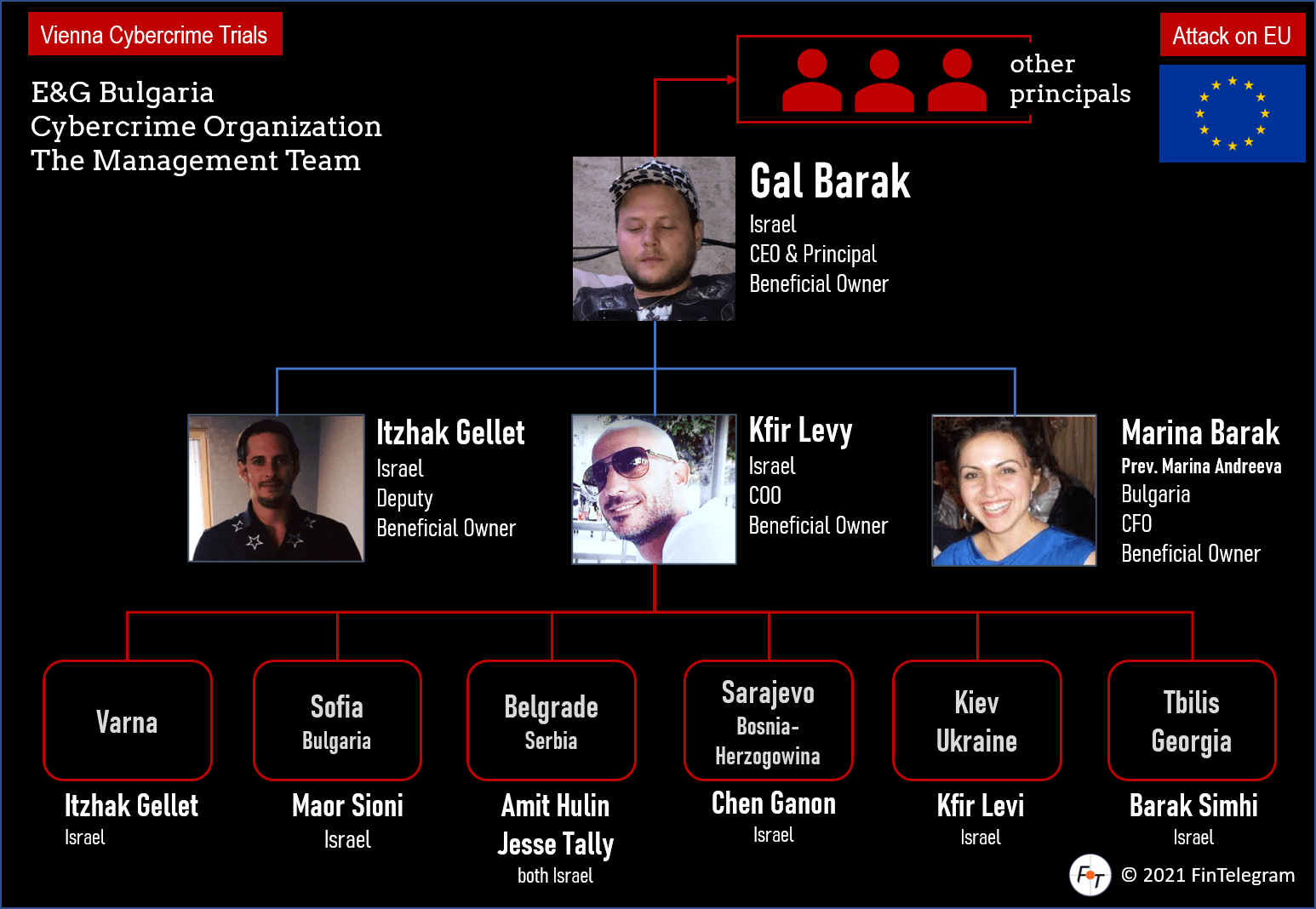Israeli Gal Barak was one of three principals of the cybercrime organization E&G Bulgaria. His two partners were Gery “Gabi” Shalon, indicted in the U.S. for cybercrime activities, and Russian Vladislav “Vlad” Smirnov a/k/a Vladislav Khokholkov. Barak’s Bulgarian wife, Marina Barak (formerly Marina Andreeva), served as chief financial officer. Gal Barak was arrested in early 2019 and sentenced to four years in prison for investment fraud and money laundering in Vienna, Austria, in September 2020. He was to be extradited to Germany for further charges but was silently released nearly six weeks ago and vanished to Israel in a private jet.
No justice for victmims
Gal Barak and his wife Marina Barak have been charged in the so-called Vienna Cybercrime Trials in Austria exclusively for the damage of Austrian victims. Gal had already served half of his prison sentence and therefore could have been released on parole. But German prosecutor Nino Goldbeck wanted to charge Barak in Germany as well and has requested extradition. Barak’s lawyer appealed against this request and objected that in the EU, one could be charged and sentenced only once for an offense in one EU member state (ne bis in idem). In the first instance, Barak’s appeal was upheld by a German court.
The German prosecution appealed, and now the case is before the European Court of Justice (ECJ), the supreme court of the European Union in matters of European Union law. This can take time. In the meantime, Gal Barak had to be released in May 2021 and immediately flew by private jet from Vienna to Tel Aviv.
An EU Paradox?
Why can someone who defrauded tens of thousands of victims in almost all EU member states of allegedly more than €200 million disappear so easily after just 2 years in prison? Gal Barak was sentenced to 2 years for the damage of the Austrian victims only. What about the victims of the other EU states? Are they not seeing justice, let alone their money? Are we witnessing a paradox here?
As a matter of fact, an EU member’s prosecutors can only indict an alleged cybercriminal for those crimes related to the victims of this jurisdiction. Thus the damages of victims of other EU member states must be charged by the respective member states’ prosecutors. Following the decision of the German court in the Barak case, it seems that after a conviction in the jurisdiction, the victims of the other jurisdiction can no longer find justice. This is absurd and evidently an EU paradox. If the EUCJ upholds Barak’s appeal, the EU will be a paradise for cybercriminals like Gal Barak.
Failing Austrian courts?
Here is another paradox – in Germany, a subordinate boiler room employee of Gal Barak, the Bulgarian Dimitar Moraliyski a/k/a James Morra (his stage name)a, was recently sentenced to four years in prison. Read the story about James Morra here. He was charged by Nino Goldbeck, the prosecutor that did not manage to get Gal Barak extradited and charged. Not yet! Question: how can it then be that an Austrian court sentences Gal Barak, the boss of this cybercrime organization to only four years in prison?
Another unbelievable story from the courtroom in Austria is that the judge in charge of Gal Barak, Christian Boehm, to this day, has not released the frozen client funds for payment to the victims. This is no longer a paradox; this is an outright failure of a judge or the judiciary; no justice for the victims, the message is.
Waiting for Marina Barak sentence
The ECJ will have to rule on this paradox. In the meantime, the prosecution against Marina Barak continues in Vienna. A verdict is expected in July 2021. Against the backdrop of the legal turmoil surrounding her husband, the trial of Marina Barak becomes that much more important. If the courts deny justice and money to cybercrime victims, then the fight against cybercrime in the EU is failing.
Looking our for Gal Barak
We would like to know what Gal Barak is currently doing in Israel while waiting for the ECJ decision and ask our whistleblowers for relevant information.
